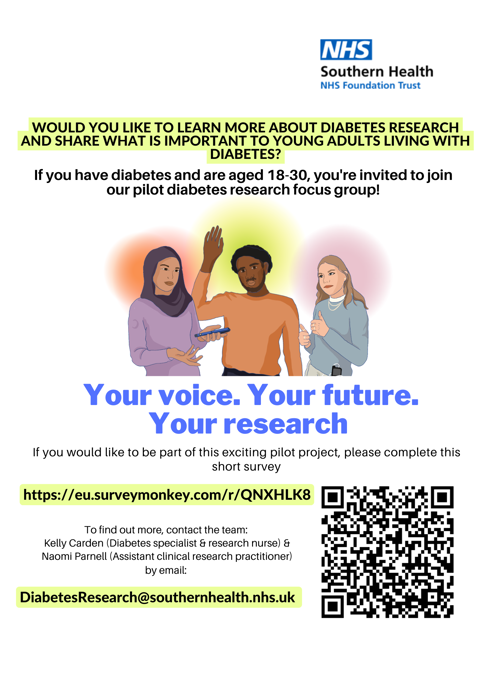
Study recruitment: Getting young people with diabetes involved in research
Young people with all forms of diabetes asked to take part in a survey to ensure their voice is heard.
A survey has been produced by healthcare professionals looking for feedback on how young people access information about diabetes research.
The Underserved Communities pilot project explores how best to get young adults living with diabetes involved with research.
Researchers are looking for young people living with a diabetes diagnosis (including type 1 diabetes, type 2 diabetes, latent autoimmune diabetes in adults (LADA), maturity onset diabetes in the young (MODY), gestational diabetes) aged 18-30 and based in the UK to take part in the study.
Researchers said: “We aim to ensure their voice is heard in helping to shape future research projects and provide them with potential opportunities to meet with researchers and learn about other local and national studies.”
The Undeserved Communities pilot project is being conducted by Kelly Carden, a Diabetes Specialist and Research Nurse, and Nay Parnell, Assistant Clinical Research Practitioner at West Hampshire’s Diabetes Service for Southern Health NHS Foundation Trust.

Kelly said: “We’re excited to update you on the Underserved Communities pilot project that Nay and I have been involved in following successful funding from the National Institute for Health and Care Research (NIHR).
“Six weeks ago, Nay joined the team as the Assistant Clinical Research Practitioner, working alongside me. We have been developing ideas and exploring potential opportunities for young adults to get involved with diabetes research.
“The study is funded until 31st March and during this time we hope to set up a young adults focus group to establish ways in which we can enhance and raise awareness of diabetes research.
“We appreciate your support in this project. If you have any questions, please do send us an here and we’ll be happy to help.”
Kelly and Nay invite people to share the posters and survey links with young adults, through clinics and via social media.
Those taking part in the study can also share their contact information to be invited to future focus groups and conferences.
To take part in the study click here
NOTE: DRWF will from time-to-time advise readers of ‘calls to participate’ in diabetes and related health research studies. It should not necessarily be considered that the charity is in any way connected to the study or the group issuing the call for participants. If we are involved in any way, we will make this known. We will only share external calls where we have confirmed that the study holds ethics committee approval, and the study is specific to diabetes and related health. Taking part in a medical research study is a big step and further helpful information can be found via the National Institute for Health and Care Research Clinical Trials Guide.
Recent News


